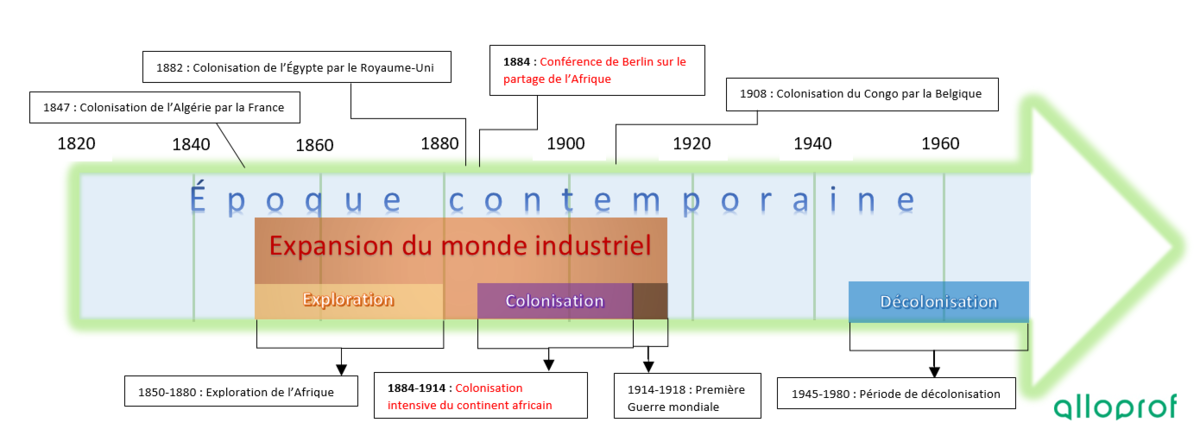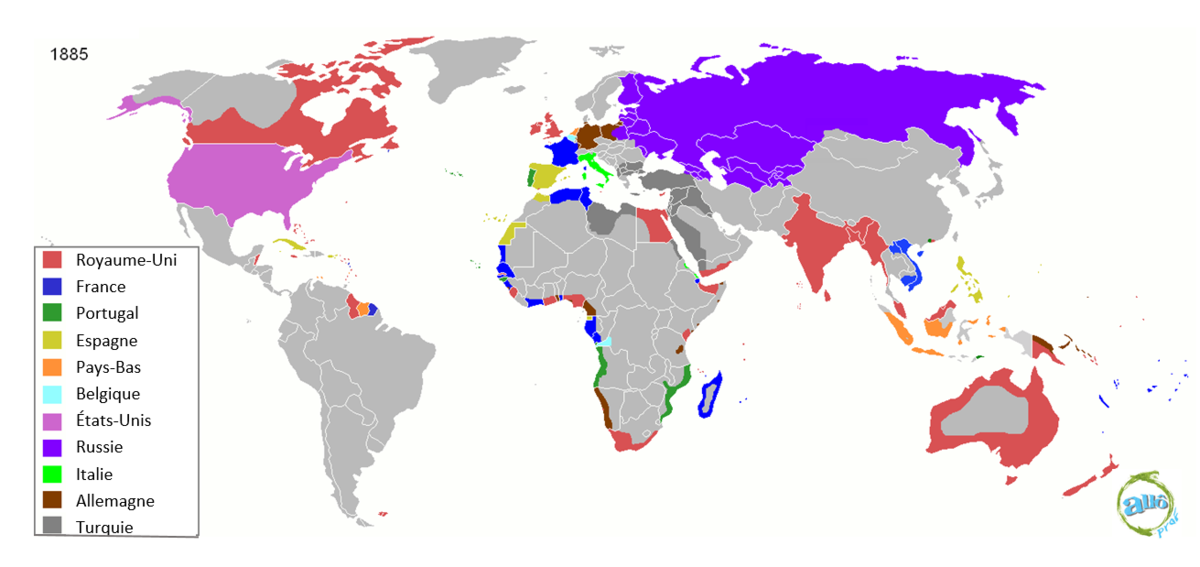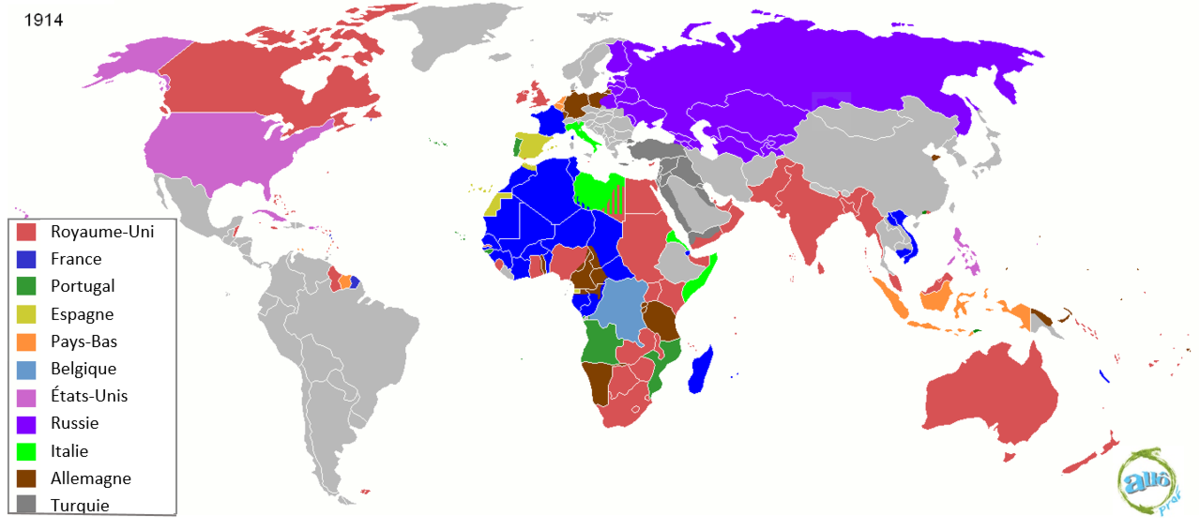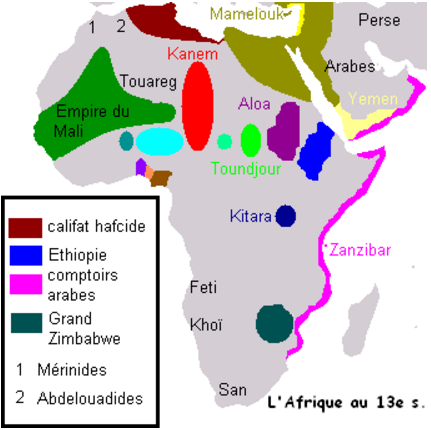
Note: Image in English coming soon
The expansion of the industrial world and the colonization of Africa were the logical consequence of a major event that took place in Great Britain in the 18th century: the industrialization. European factories needed a large supply of raw materials to enable them to manufacture large quantities of the goods they then sold to consumers. Since the aim of capitalism is to accumulate more and more capital (and therefore to make a profit), European business owners were looking for a way to stimulate their growth at low cost. This is why the European powers established empires by colonising territories: they were looking for resources to exploit. By the mid 19th century, they were dividing up Africa for its raw materials, cheap labour and potential consumers.
Imperialism: Imperialism is a policy of expansion and domination by one country over another. The country practising this policy tries to create an empire, in which it imposes its cultural, economic, military and other decisions.
Although the European powers had already been exploiting Africa for several centuries, they only knew its outline (the coastline). In the 19th century, they began to explore it in order to exploit it more effectively. Within 100 years, Africa, a continent that was largely free, fell under the control of the European empires.

Note: Image in English coming soon.

Note: Image in English coming soon.
At the beginning of the 20th century, the two countries with the largest empires were France and Great Britain.

Note: Image in English coming soon.
Before the European powers took possession of Africa, several tribes lived on this immense territory. These commoners or people had their own way of life, language, religion, economy and so on. They produced enough food to support themselves. When the European mother countries took control of the territory, the situation changed dramatically.